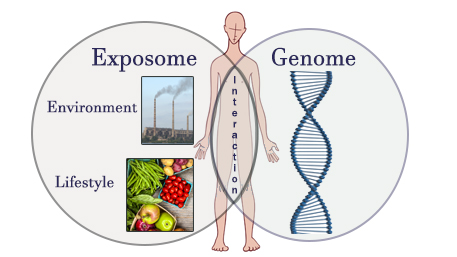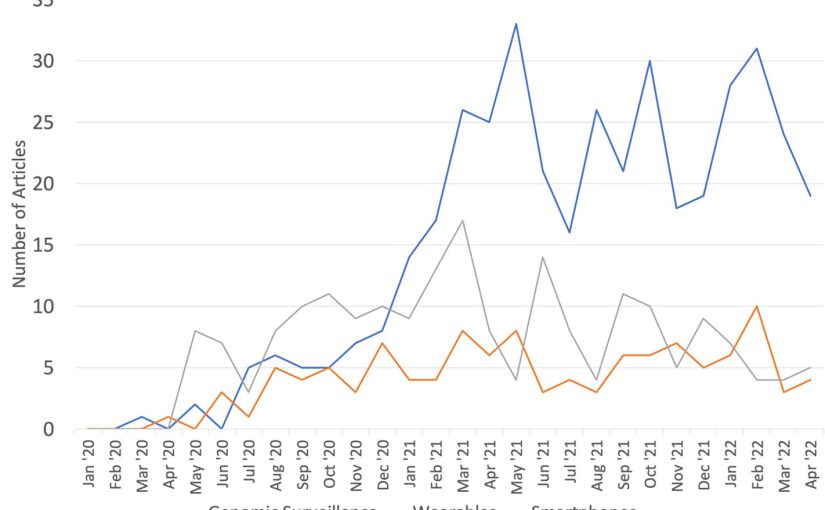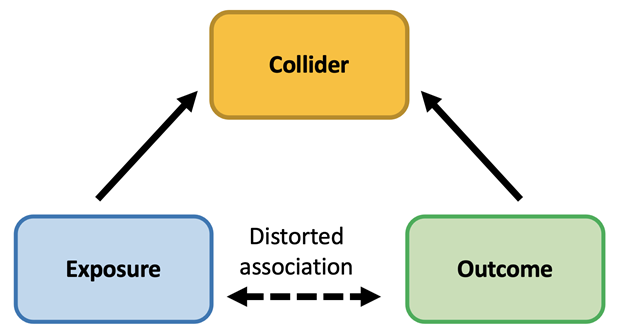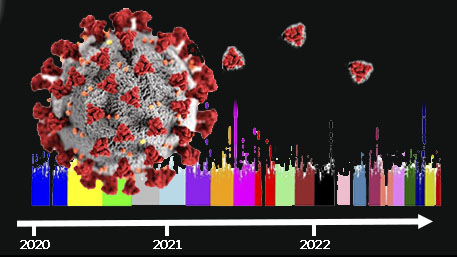Search Results
10 results for public health genomics
Genomics, Health Equity, and Global Health

The World Health Organization’s Science Council recently issued its first report on accelerating access to genomics for global health. The report makes a strong case for less-resourced countries to gain access to such technologies. Although remarkable progress has been made in the translation of genomic discoveries into health benefits, in 2020, the World Health Organization (WHO) reminded
Posted on byFrom the Genome to the Exposome: Mapping Causal Associations Between Environmental Factors and Population Health

Environmental factors such as lifestyle, diet, and exposure to toxins and chemical agents, can play an important role in our health. Complementary to the “genome,” which is the complete set of an individual’s genetic information, the “exposome” represents an individual’s complete set of environmental exposures throughout their lifetime. Coined in 2005, the “exposome” captures the
Posted on byCalling on All of Us Public Health Scientists

The All of Us Research Program data provide a unique platform for public health scientists interested in using large-scale data to improve population health. Scientists at the Centers for Disease Control and Prevention and elsewhere can now access and analyze data from the National Institutes of Health’s All of Us Research Program. In this post,
Posted on byPrecision Health Innovations in the Pandemic Era

Two recent articles, one in Nature Medicine and another in Nature Biotechnology, highlight areas of health innovation that have been accelerated by the COVID-19 pandemic. This blog post focuses on two precision health applications of technology—(1) genomics and (2) wearable devices and smartphone apps—that are likely to have a lasting impact beyond the pandemic. Increased
Posted on byPopulation Genomic Screening is Here: We Need Evidence on Health Impact and Optimal Implementation

A recent study identified 12 population-based genomic screening programs in the United States and described their implementation logistics and potential health impact. In the past decade, the promise of genomic screening in the general population has garnered increasing interest due to a combination of factors such as enhanced sequencing capabilities, lowered costs of testing, and
Posted on by 2 CommentsGenomics and Health Equity: Reaching Asian American, Native Hawaiian, and Pacific Islander Communities

On April 29, 2022, President Biden proclaimed May as Asian American, Native Hawaiian, and Pacific Islander Heritage month to “recognize the innumerable contributions, vibrant cultures, and rich heritage” of Asian Americans, Native Hawaiians, and Pacific Islanders (AA and NHPIs). In addition, the proclamation highlights the Administration’s work reducing poverty among AA and NHPI families and
Posted on byUsing Implementation Science Frameworks in Genomics and Precision Medicine: We Can Do Better!

A recent scoping review identified many structured approaches to the implementation of genomics and precision medicine and limited use of implementation science frameworks. With continuous advances in genomics and accelerated translation from discovery into clinical practice, in our blog posts, we have repeatedly examined the crucial importance and emerging role of implementation science in the
Posted on byColliding with Collider Bias: Implications for Precision Public Health

A recent JAMA Guide to Statistics and Methods reviews how collider bias can lead to erroneous inference on causal relationships in clinical and epidemiological studies, potentially leading to incorrect clinical decision making and ineffective public health action. What is Collider Bias? Informed decision making in medicine and public health relies on valid evidence from clinical
Posted on byHost Genomics and COVID-19: Two Years Later

Early in the COVID-19 pandemic, we explored the rationale for host genomic studies to our understanding of COVID-19 occurrence and outcomes. Two years into the pandemic, we are taking another look. Many academic research groups and consortia—such as the COVID-19 Host Genetics Initiative (COVID-19 HGI) and COVID Human Genetic Effort—have launched worldwide open-science collaborations, featuring
Posted on byUsing Pharmacogenomics to Better Understand the Role of Selected Medications and Birth Defect Risk

Through a funding opportunity from CDC’s Office of Genomics and Precision Public Health in collaboration with the Office of Advanced Molecular Detection, CDC’s Birth Defects Monitoring and Research Branch in the National Center on Birth Defects and Developmental Disabilities will conduct a 2-year project to gather genome-wide genotyping data to look at relationships between pharmacogenomic
Posted on by